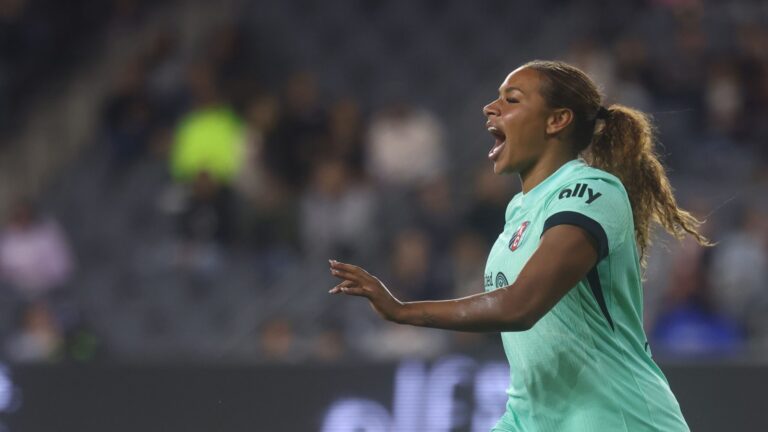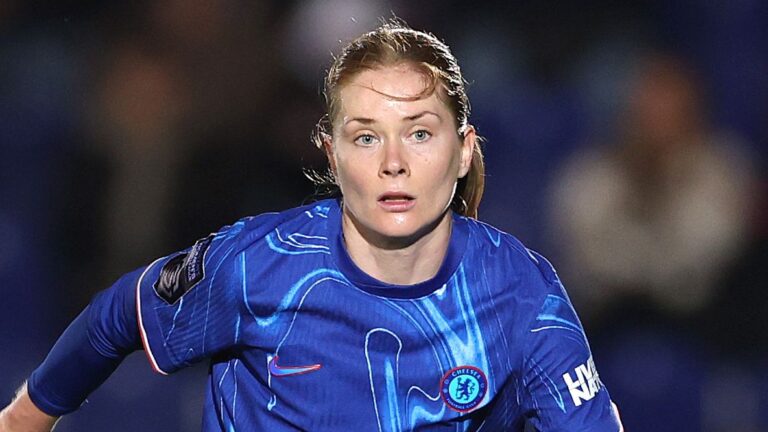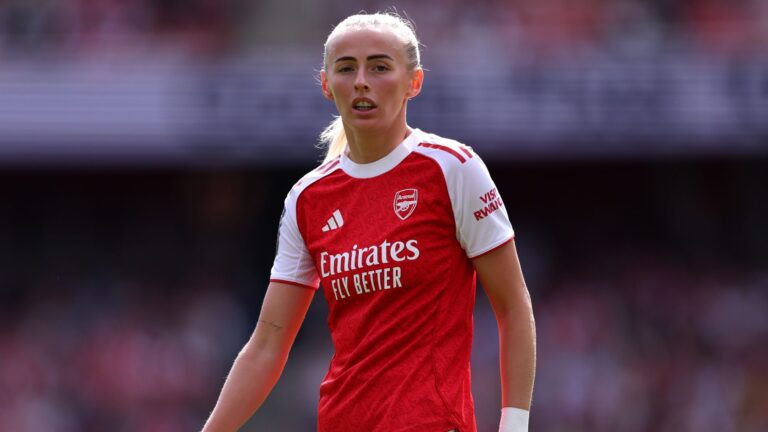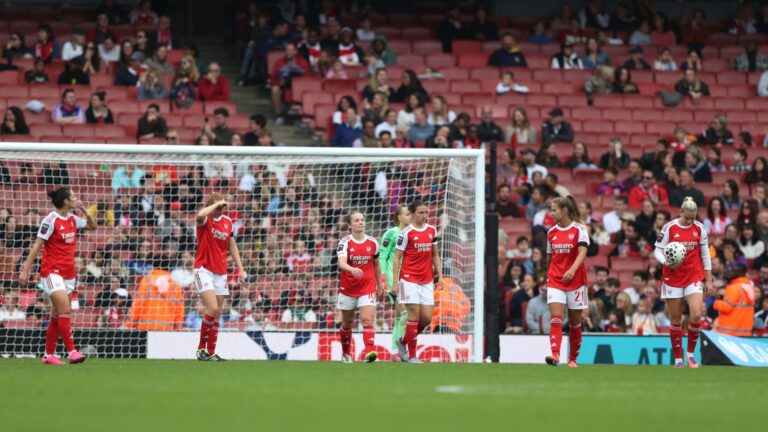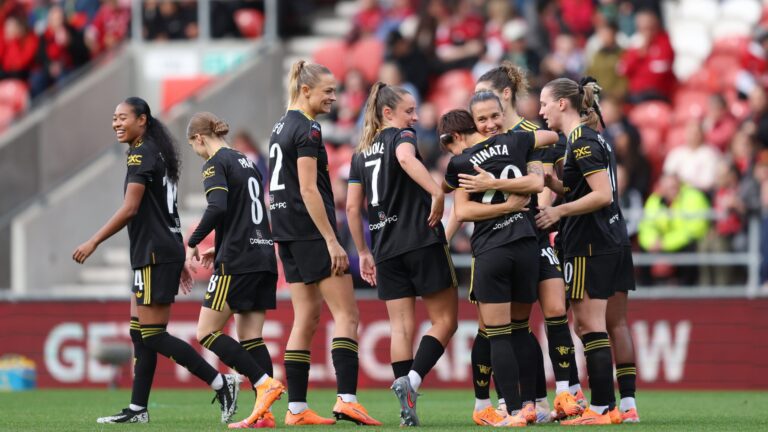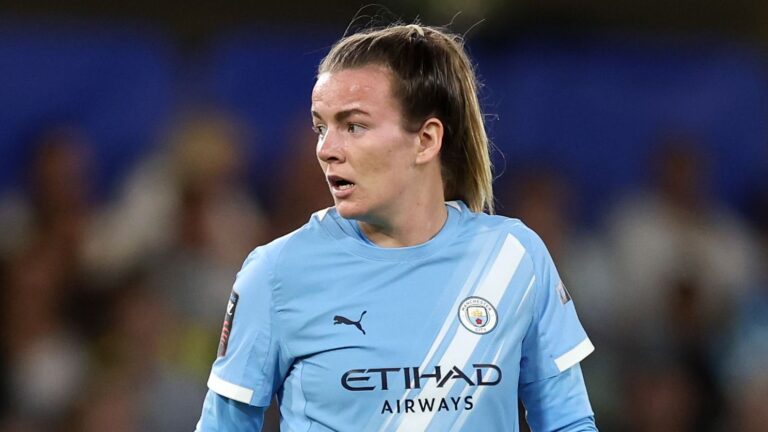Gender Bias in Football: Sonia Bompastor’s Candid Revelations
Gender discrimination remains a persistent issue in the world of football, as highlighted by recent insights from top coaches like Chelsea‘s Sonia Bompastor. This article delves into the ongoing challenges women face in the sport, drawing from a groundbreaking report and personal stories that underscore the need for continued progress and equality.
Sonia Bompastor’s Eye-Opening Experiences with Inequality
A recent comprehensive study on women in football has shed light on the widespread prejudice within the industry, revealing that an overwhelming 78% of female professionals have encountered discrimination. According to the report, published mid-week, roughly two-thirds of respondents have dealt with sexist humor or belittling comments at work, and a startling 56% noted that their complaints about gender-based issues went unaddressed.
For someone like Bompastor, these statistics are all too familiar. The 45-year-old coach shared a telling anecdote about her job interviews, recalling, “What do you suppose was one of the initial queries directed at me when I pursued a head coaching role?” She went on to disclose, “They often asked, ‘Can you manage raising four children while leading a top-tier club?’ I doubt anyone would pose that to a male candidate in the same situation.”
Exceptions in the Football World
It’s worth noting that Bompastor doesn’t point fingers at her current employers. “That kind of questioning didn’t happen at Chelsea,” she mentioned lightheartedly, indicating that not all organizations share the same flaws. Nevertheless, the persistence of such inquiries illustrates the broader hurdles women must overcome, emphasizing that the sport still has significant strides to make toward fairness.
The Path Forward for Inclusivity
Bompastor emphasized the importance of ongoing dialogue, stating, “There’s definitely scope for betterment here, and it’s encouraging to see individuals stepping up with the courage to discuss it openly.” She believes that acknowledging these problems is the first step to real change, especially as recent surveys suggest that discrimination rates might be even higher today, with some estimates reaching 80% among women in sports leadership roles as of late 2025.
Perspectives from Other Leaders in Women’s Football
Arsenal’s head coach Renee Slegers echoed these sentiments, stressing that while the game has advanced, there’s no room for self-satisfaction. “We have plenty more ground to cover,” Slegers explained. “It’s essential to keep a watchful eye, even on the subtle aspects of bias. Awareness is key, as progress often hinges on addressing the everyday oversights.”
Recent Progress and Its Limitations
According to updated figures from women’s football advocacy groups, the sport has seen a 15% increase in female coaching positions over the past year, yet subtle discrimination persists. Slegers added that vigilance is crucial, as minor instances of inequality can accumulate and hinder overall advancement.
Bompastor’s Impressive Track Record Amid the Challenges
What makes the scrutiny of Bompastor’s personal life even more unjust is her exceptional performance on the field. In her inaugural season at the helm, she guided Chelsea to a historic domestic sweep, securing victories in the Women’s Super League, League Cup, and FA Cup without a single defeat in domestic play.
Breakthrough Achievements in the WSL
Under her leadership, Chelsea amassed a league-record 60 points in the WSL, including 18 hard-fought points against powerhouses like Arsenal, Manchester City, and Manchester United. The season culminated in a dominant 3-0 win over United at Wembley, claiming the final trophy with flair. Looking ahead, Bompastor now sets her sights on the upcoming WSL clash with West Ham this weekend, where her team aims to build on their momentum.
The Bigger Picture of Success and Equality
Instead of fixating on irrelevant personal matters, Bompastor’s story serves as a powerful analogy for the untapped potential in women’s football-like a well-orchestrated team play that turns overlooked talent into championship wins. As the sport evolves, incorporating the latest data on gender equity could help organizations foster environments where achievements, not stereotypes, take center stage.



The Revelation from Sonia Bompastor
Sonia Bompastor, the Chelsea Manager leading the women’s team, recently opened up about a striking interview question that highlights gender disparities in sports coaching. In her discussion, Bompastor revealed that she was asked about balancing family responsibilities and coaching demands- a query that’s rarely, if ever, directed at male coaches. This insight sheds light on the subtle yet pervasive gender bias in the sports industry, particularly for women aspiring to leadership roles like those in professional football management.
This type of questioning underscores how female coaches, including those at elite clubs like Chelsea, often face scrutiny on personal life aspects that male counterparts are not. Bompastor’s experience as a former player turned manager brings authenticity to the conversation, emphasizing the need for more equitable practices in hiring and interviews. Keywords like “gender bias in coaching interviews” and “Sonia Bompastor Chelsea Manager” are increasingly searched as discussions around women’s roles in sports gain traction.
Why This Question is Problematic
The question posed to Bompastor isn’t just intrusive; it’s a clear indicator of deep-rooted stereotypes that assume women coaches must justify how they manage home and work life. For male coaches, interview focuses typically center on tactics, player development, and team strategies, without delving into personal matters. This double standard can deter talented women from pursuing high-profile positions, as it adds an unnecessary layer of judgment.
In the context of Sonia Bompastor and her role at Chelsea, this bias could affect team dynamics and morale. Research from sports organizations shows that such questions contribute to lower representation of women in coaching, with only a small percentage holding top roles in major leagues. Addressing this issue is crucial for fostering a more inclusive environment in women’s football and beyond.
Gender Bias in Sports Coaching: A Closer Look
Gender bias in sports coaching manifests in various ways, from interview questions to daily workplace challenges. For instance, female coaches like Bompastor often have to prove their credentials more rigorously than men, despite similar or superior experience. This phenomenon is backed by studies from organizations like the Women’s Sports Foundation, which highlight how implicit biases lead to fewer opportunities for women in leadership.
At Chelsea, under Bompastor’s guidance, the team has seen successes that demonstrate her expertise, yet the initial hurdles she faced in interviews remind us of ongoing inequalities. Keywords such as “female coaches interview challenges” and “equality in women’s sports management” are essential for SEO, as they help readers find resources on overcoming these barriers.
Benefits of Promoting Equality in Coaching
Promoting gender equality in coaching yields numerous advantages for teams and the broader sports community. Firstly, diverse leadership brings fresh perspectives, leading to innovative strategies and better player performance. For Chelsea Manager Sonia Bompastor, her background has likely contributed to the team’s progressive approach, enhancing overall competitiveness.
Additionally, equality fosters a positive culture that attracts top talent, reduces turnover, and inspires young athletes, especially girls, to aim for coaching roles. Organizations that prioritize fair practices often see improved public image and fan engagement, which is vital in the evolving landscape of women’s football.
Practical Tips to Combat Bias in Interviews
If you’re involved in hiring for sports roles, implementing these tips can help mitigate gender bias:
- Standardize Interview Questions: Create a uniform set of questions focused on professional skills, ensuring no one is asked about personal life unless it’s relevant to all candidates.
- Diversify Hiring Panels: Include a mix of genders and backgrounds to reduce unconscious biases during evaluations.
- Provide Bias Training: Educate interviewers on recognizing and avoiding stereotypes, drawing from real-world examples like Sonia Bompastor’s experience.
- Encourage Self-Advocacy: Advise candidates to redirect inappropriate questions back to their qualifications, promoting a more equitable dialogue.
These strategies not only support women in sports coaching but also enhance the overall integrity of the hiring process. According to HR experts, such measures can increase female representation in leadership by up to 30%.
Case Studies of Successful Female Coaches
Several case studies illustrate how overcoming gender bias has led to triumphs in sports. Take Emma Hayes, who previously managed Chelsea Women’s team before Bompastor; she navigated similar challenges and achieved multiple titles, proving that talent thrives when given a fair chance. Another example is Sarina Wiegman, England‘s women’s national team coach, who has openly discussed biases and still led her team to Euro 2022 victory.
Bompastor’s own journey mirrors these stories-transitioning from playing for Lyon to managing Chelsea, she’s broken barriers while maintaining a focus on player welfare. These cases underscore the importance of persistence and institutional support in combating gender disparities.
First-Hand Experiences and Stories
Drawing from first-hand accounts, many female coaches share stories akin to Bompastor’s. In interviews with publications like The Guardian, coaches have recounted being questioned about family plans during job discussions, which male applicants avoid. Bompastor herself has shared in media appearances how such questions made her question her fit for the role, but she used it as motivation to excel.
These narratives highlight the emotional toll of bias but also the resilience it builds. By amplifying these experiences, we encourage a shift toward more respectful and professional interactions in sports management. As searches for “Sonia Bompastor interview bias” grow, sharing these stories helps normalize conversations about equality in coaching.


